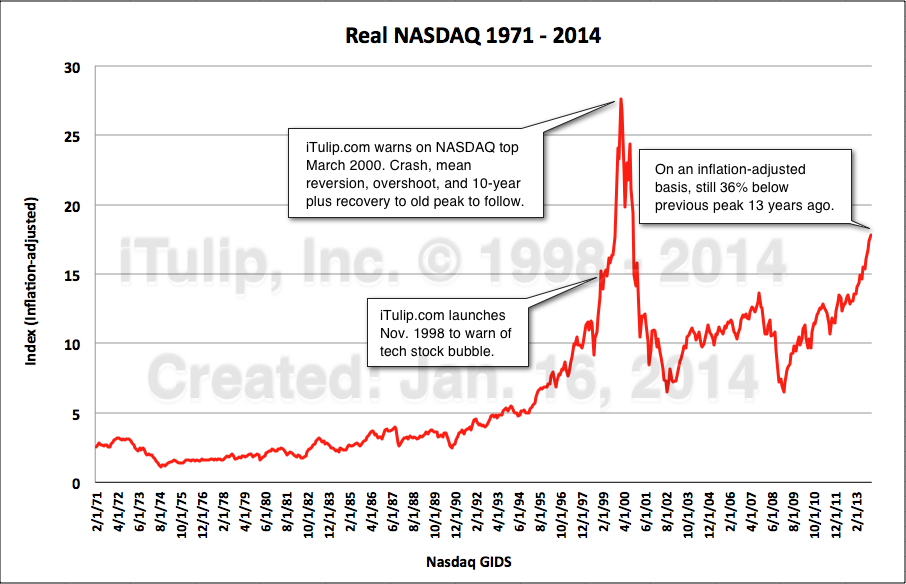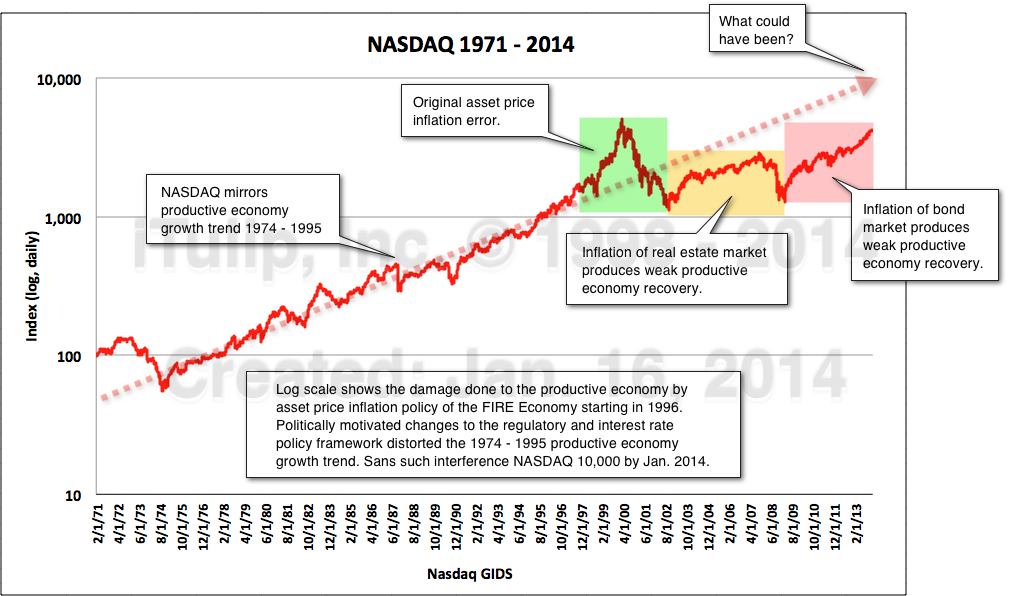I honestly didn't notice how high it has come since 2008. The damn thing is near the year 2000 top when euphoria was at its highest. I mean we literally have a new blow off top. I didn't think we would ever see these highs in the Nasdaq for another 10 years. But at this rate, we'll hit and surpass the year 2000 high in a matter of months. The crash this time is going to be so spectacular in scale. I really wasn't expecting it to be as bad as 2008, but the larger this thing blows up, the more I think we may see something even worse than before
http://www.reuters.com/article/2013/...9AS0ER20131129
http://www.reuters.com/article/2013/...9AS0ER20131129




Comment